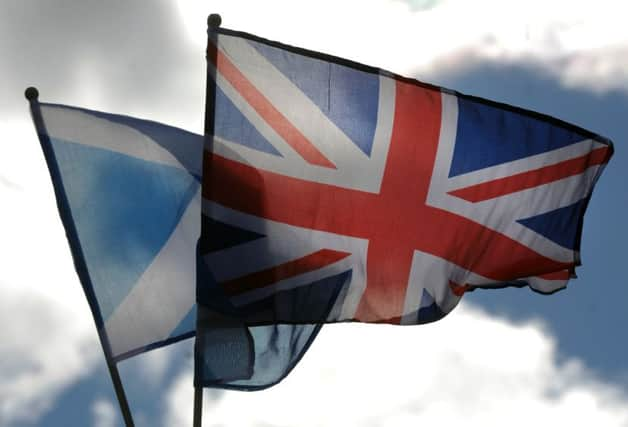Leaders: More debate if opinion is not polarised


The latest is the Nobel laureate Sir Paul Nurse. He has urged the Scottish and UK governments to ensure academics who enter the debate will not be penalised for expressing their views. He says academics are reluctant to speak out for fear of losing government funding.
Similar concerns have been expressed in the business realm, with the leaders of many firms afraid to speak out, through fear either of damaging commercial relations with central and local government or of finding themselves the target of intimidation and abuse.
Advertisement
Hide AdAdvertisement
Hide AdIt should be acknowledged that others in business and academia say they have not felt such bullying and reject suggestions of being intimidated. But there can be little doubt many business figures have felt pressured into remaining silent rather than being free to express legitimate concerns about the impact independence could have on their investment and expansion plans.
To the extent that the suppression of reasoned opinion is taking place, this does not reflect at all well on Scottish politics. The independence referendum is a profoundly important moment in Scotland’s history. It demands a free, fair and responsible debate.
Some have not so much entered the debate as blundered their way into it with provocative claims. It is not necessary for those in academia or business to nail their colours to the mast if they have serious concerns to raise. Just asking a question or highlighting concerns can put these issues into the spotlight without having to go down the road of a divisive public declaration. An example of reasoned concern, drawing on independent research, was recently provided in a speech by Keith Cochrane, chief executive of Weir Group. Other well-reasoned analysis has come from Scottish Financial Enterprise, which was careful not to express any view pro or against the issue of independence.
With the referendum little more than two months away, an appeal for nuanced expression and subtle argument may be already too late. But there is still time for those on both sides of the argument with concerns to raise or points of public interest to make to do so and to be respected for their opinion.
The decision Scotland faces is too fundamental for issues to go unspoken. But the manner in which we speak – and respond to those who have spoken – should be considered and respectful. To ensure a ready reconciliation afterwards, as much as to inform the decision on 18 September, we need to respect each other’s right to differ.
Bring it all out into the open
IT IS a measure of how far attitudes have changed – and altogether for the better – that there has been a rising chorus of criticism over missing documents believed to relate to allegations of paedophile activity in the 1980s and 1990s.
This story has gathered pace in recent days and, while few details have emerged, there is a clear determination that the matter should be pursued with vigour. Home affairs committee chairman Keith Vaz said the files seemed to have been lost “on an industrial scale”, while Lord Tebbit, a Cabinet minister at the time, has said there may well have been a cover-up in the interests of the Establishment. Back then, the prevailing orthodoxy may have been to cover up and protect senior figures. “That view,” he declared, “was wrong.”
A Home Office review last year found 527 potentially relevant files that it had kept, but a further 114 were missing, destroyed or “not found”. Among those found, there were 13 pieces of information about alleged child abuse, nine of which were known about or had been reported to police, including four cases involving Home Office staff. The four others, which had not been previously disclosed, have now been passed to police.
Advertisement
Hide AdAdvertisement
Hide AdWhatever the consensus in a previous era not to delve too deeply, it is not acceptable in 2014. Senior figures in broadcasting and entertainment have been brought to legal account over child abuse. Those in the political realm should not be exempt from the same process of inquiry and legal investigation. The affair of the missing files is leaving a worrying trail of unanswered questions, and these need to be pursued – even if it is ultimately found there is no case to answer.